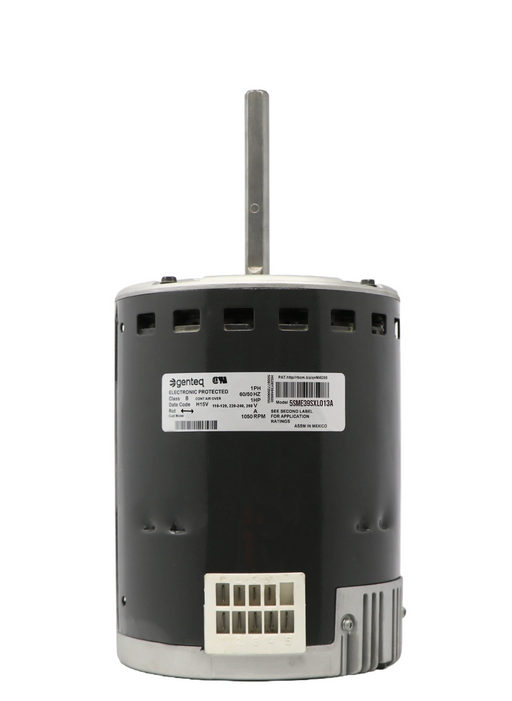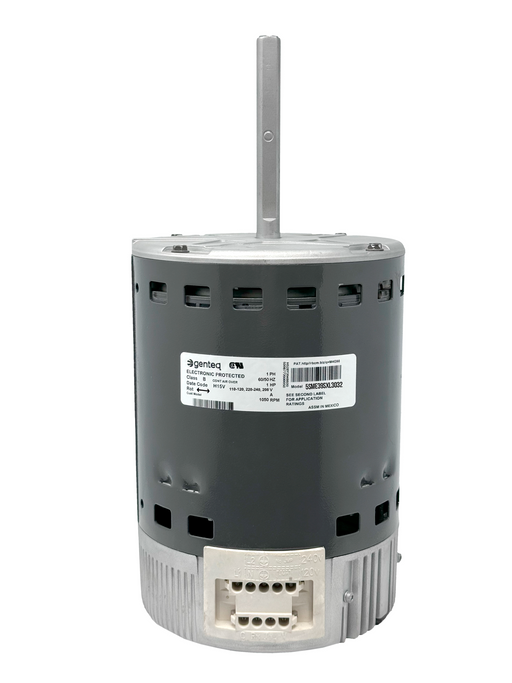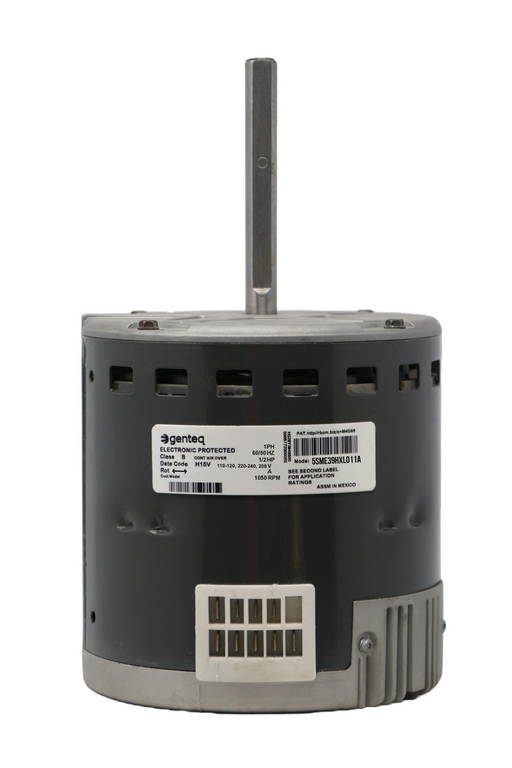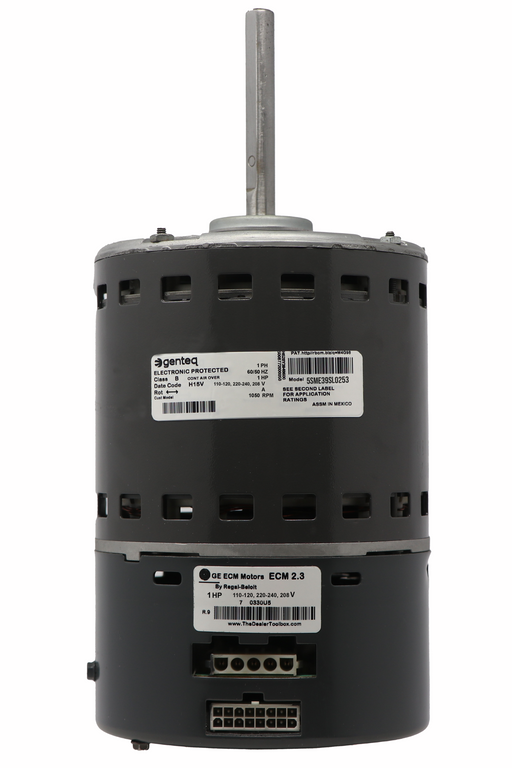(813) 440-8108

Understanding Electronically Commutated (ECM) Blower Motors: Efficiency and Performance
Electronically Commutated Motors (ECM) are advanced motors used in HVAC systems that offer superior efficiency, performance, and control compared to traditional motor types. These motors are designed to adjust their speed based on the HVAC system's demands, resulting in significant energy savings and enhanced comfort.
In this article, we will explore the features, benefits, and applications of ECM blower motors, how they differ from conventional motors, and why they are becoming popular in modern HVAC systems.
What Are ECM Blower Motors?
ECM blower motors are DC motors controlled by an onboard microprocessor. Unlike traditional motors, ECMs use electronic commutation instead of mechanical brushes, which results in higher efficiency and lower maintenance requirements.
- Operation: Uses electronic controls to adjust speed and torque.
- Efficiency: It can achieve up to 90% efficiency, significantly higher than traditional AC motors.
- Noise Level: Operates quietly, with smoother speed transitions.
👉🏻 Read More: ECM Motor vs. Variable Speed Motor: Understanding the Differences
Benefits of ECM Blower Motors
1. Energy Efficiency
One of the primary benefits of ECM blower motors is their energy efficiency. These motors can adjust their speed to match the exact requirements of the HVAC system, reducing energy consumption.
- Variable Speed: Can operate at different speeds, using only the energy needed for the current demand.
- Reduced Energy Bills: The motor's efficient operation can significantly reduce homeowners' energy bills.
2. Enhanced Comfort
ECM motors provide better control over airflow, leading to more consistent indoor temperatures and improved comfort.
- Precise Airflow Control: Allows for fine-tuned adjustments to airflow, enhancing temperature consistency.
- Improved Humidity Control: Helps maintain optimal humidity levels by adjusting airflow.
3. Longevity and Reliability
The design of ECM motors reduces wear and tear, leading to a longer lifespan and fewer breakdowns.
- No Brushes: Eliminates the need for mechanical brushes, reducing maintenance and increasing motor life.
- Self-Diagnosing: Many ECMs have self-diagnostic capabilities, making identifying and fixing issues easier.
Remanufactured Motor by United HVAC Motors
2 Year Replacement Warranty (Terms Apply)
Plug n Play - 100% Programmed
Match your Motor Model N...
Remanufactured Motor by United HVAC Motors
2 Year Replacement Warranty (Terms Apply)
Plug n Play - 100% Programmed
Match your Motor Model N...
5SME39SXL013A GE Genteq Blower Motor ECM X13 1 HP
5SME39SXL3032 GE Genteq Blower Motor ECM 3.0 1 HP
Applications of ECM Blower Motors
ECM blower motors are used in a variety of HVAC applications, including:
- Residential HVAC Systems: For energy-efficient heating and cooling in homes.
- Commercial HVAC Systems: Ideal for buildings where precise climate control and energy savings are crucial.
- Air Handlers and Furnaces: Provides efficient and reliable airflow in air handlers and furnace systems.
Comparing ECM and Traditional Motors
|
Feature |
ECM Blower Motor |
Traditional Motor (PSC) |
|
Efficiency |
Up to 90% |
Around 60-70% |
|
Speed Control |
Variable |
Single/Two-Speed |
|
Maintenance |
Low |
Moderate |
|
Noise Level |
Low |
Higher |
|
Initial Cost |
Higher |
Lower |
👉🏻 Read More: Key Components of an HVAC Blower Explained
Conclusion
Electronically Commutated (ECM) blower motors offer a range of benefits that make them an excellent choice for modern HVAC systems. Their high efficiency, enhanced comfort, and reliability make them valuable investments for residential and commercial applications. Homeowners and businesses can enjoy reduced energy costs, better indoor air quality, and a more reliable HVAC system by choosing an ECM motor.
Explore our range of high-quality ECM blower motors on our website to find the perfect match for your HVAC needs.
5SME39HXL011A GE Genteq Blower Motor ECM X13 1/2 HP
Remanufactured Motor by United HVAC Motors 2 Year Replacement Warranty (Terms Apply) Plug n Play - 100% Programmed Match your Motor Model N...
View full details5SME39SL0253 GE Genteq Blower Motor ECM 2.3 1 HP
Remanufactured Motor by United HVAC Motors 2 Year Replacement Warranty (Terms Apply) Plug n Play - 100% Programmed Match your Motor Model N...
View full details





